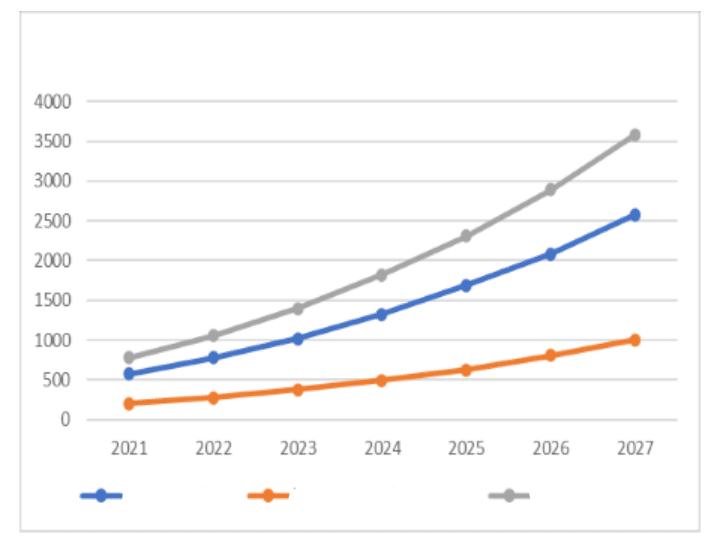Single Cell Genomics in Next-Generation Sequencing (NGS) Market Reaches $780 Million
The total market for single cell genomics using sequencing is estimated to be $780 million in 2021. That includes – the hardware, service of the hardware, software, and consumables including for the sequencing step and other types of downstream analysis. That’s the finding of Single Cell Analysis in Next-Generation Sequencing Markets (Market Size and Forecast, Segment Breakouts), 2022-2027 from Kalorama Information, a leading healthcare market research firm.
The study of individual cells has long been an important part of biological research. Historically this has been a very manual process; some automated technologies are available. The need for microscopy and other traditional methods has remained, as new methods have also arrived, all of which have been gradually improved. The ability to amplify DNA or RNA from an individual cell was a key development.
Illumina, 10X Genomics, Bio-Rad, Mission Bio, Dolomite Bio, Fluidigm, Qiagen and Takara Bio participate in this market, among others.
As a result of continuous technological advances in the last 15 years, the use of NGS has constantly gained more acceptance in broad areas of biological research. At the same time, a range of new products have been introduced to allow the isolation and preparation of large numbers of individual cells in parallel. Along with other technological innovations, these have resulted in new capabilities to routinely study large numbers of genes in tens or hundreds of thousands of individual cells.
Single Cell Analysis in Next-Generation Sequencing Markets (Market Size and Forecast, Segment Breakouts), 2022-2027 focuses on the market for single cell genomics products — the hardware, service of the hardware, software, and consumables including for the sequencing step and other types of downstream analysis. It discusses trends, challenges, strategies, companies, and products, and provides estimates of market share and revenue growth for the market. The competitive situation, deals, and products are covered in respective chapters. Historical data for 2021 is provided, with forecast data spanning 2022-2027.


